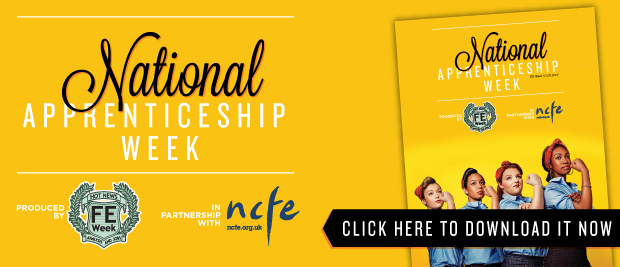Government plans to introduce new post-16 performance tables for level three vocational qualifications have come under fire from the boss of a leading awarding organisation.
The Department for Education has launched a consultation on the plans in which only around one-tenth of nearly 4,000 qualifications currently offered to 16 to 19-year-olds would be counted in the tables.
Chris Jones, chief executive at City & Guilds, warned that the government was focusing on “cutting ‘low-value’ vocational courses, but forgetting about the real problem of helping young people get the skills they need for employment”.
He said: “Our focus is very much on enabling progression into employment or further study. We believe too much emphasis is put on league tables rather than on what will help learners secure a job.”
FE Minister Matthew Hancock last year announced his plans for a scaled-down list of recognised vocational courses.
These would qualify for the Tech Bacc, an idea that Shadow Education Secretary Stephen Twigg at the time accused him of stealing from Labour.
But Mr Hancock said action was needed because “too many students are spending time working hard but getting nowhere”.
He added: “First, it will end the current perverse incentives — every student will have to study a high-quality qualification of substantial size if their college or school sixth form is to get credit in the league tables.
“Second, it will be clear which qualifications will progress young people into skilled occupations and which are more general in nature.”
The government said its plans would “incentivise the take-up of qualifications…most appropriate for students aged 16 to 19”.
Association of Colleges’ director of policy Joy Mercer, described the move as “more housekeeping than a full reshaping of the system”.
The consultation also recommended that vocational qualifications be classified as ‘applied general’ or ‘occupational’.
Dr Mary Bousted, general secretary of the Association of Teachers and Lecturers, said that her group was “puzzled” by the government’s plan to report different qualifications separately. “We are concerned that labelling some vocational qualifications general and others for skilled occupations risks creating an unjustified hierarchy.”
A spokesperson for the University and College Union said he was concerned courses were being “de-legitimised”.
“Many of these courses make
the difference for some young people between dropping out of education and training altogether, or staying on to find out they can learn,” he said.
Meanwhile, Brian Lightman, general secretary of the Association of School and College Leaders, said there was “an argument” for reducing the number of vocational qualifications.
“What is not clear is how the new qualification [Tech Bacc] will fit in with existing qualifications or proposed changes to A-level and to the curriculum,” he added.
“We desperately need a coherent policy from the government on qualifications and curriculum — at the moment that is sorely lacking.”
Email 16-19vq.consultation@education.gsi.gov.uk to take part in the consultation, which ends on May 10.
—————————————————————————————–
Editorial: League of their own
In December FE Minister Matthew Hancock accepted he had stolen the idea of a Technical Baccalaureate from Labour.
The Minister said in Parliament: “The Tech Bacc is one of the things we will do to ensure higher quality occupational and vocational qualifications.”
Yet, much like the English Baccalaureate, providers will continue to be funded for qualifications that do not meet the criteria for inclusion.
So the unanswered question is why would colleges want, as Mr Hancock calls it: “Credit in the league tables”?
For example, will providers risk losing their contract if too few level three learners achieve a recognised qualification?
Will Ofsted care how many learners are achieving the government’s prescribed list of qualifications if learners have positive progressions?
It is therefore the government’s use of the new performance table that will need careful scrutiny.
Also, why does the government only want to create new qualifications for a new league table at level three?
So many questions, and less than nine weeks in which to respond.


